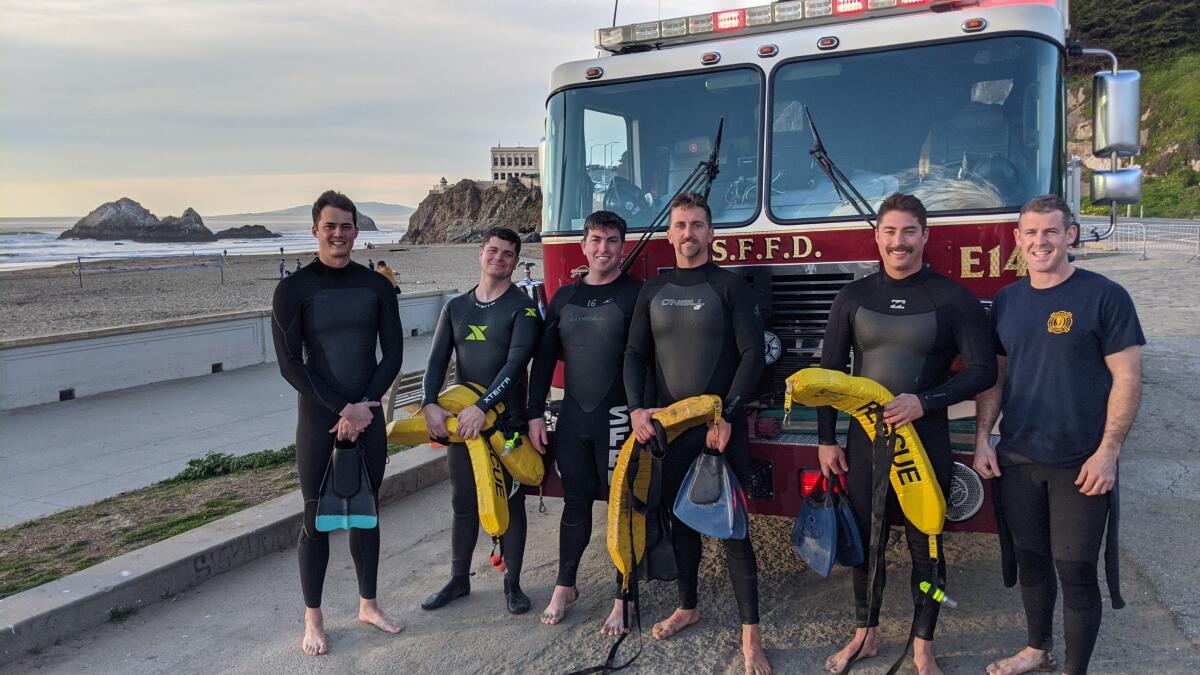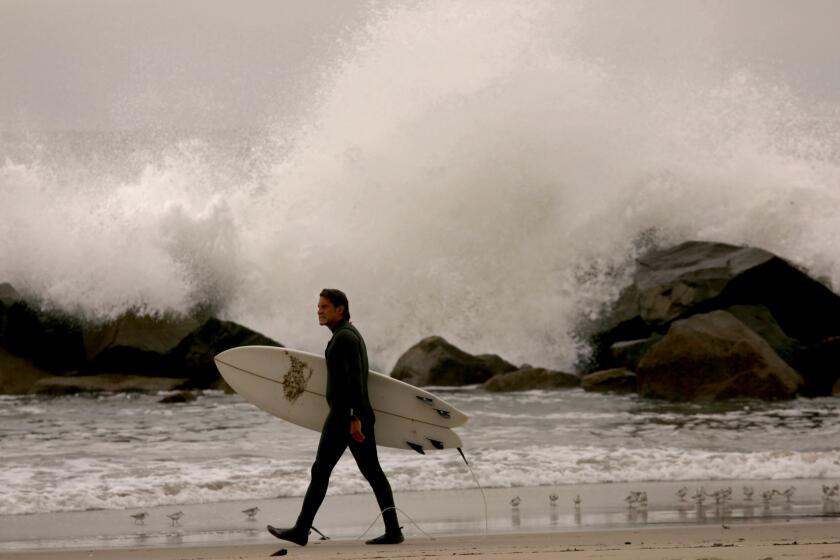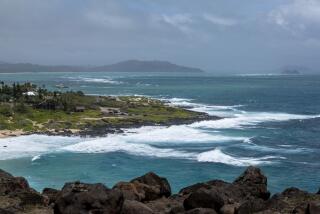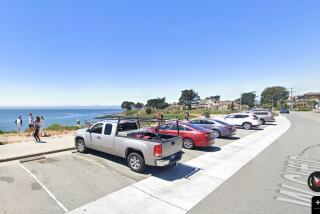Surfers rescued from tsunami-roiled waters after ignoring warnings to stay out of ocean

Early Saturday morning, authorities along the California coast told people to stay off the beach and out of the water as powerful tsunami waves from a volcanic eruption near the Pacific island nation of Tonga bore down on the West Coast.
Though most heeded the warnings, some surfers, anglers and beachgoers ignored them — prompting emergency rescues in dangerous waters from teams of fire department swimmers.
At one popular beach in San Francisco, rescue swimmers braved churning waves and strong currents on Saturday afternoon to save two surfers who had challenged nature to a duel — and lost.
Members of a San Francisco Fire Department patrol spotted a surfer about 300 yards off the coast waving his hands and calling for help about 3 p.m., said Lt. Jonathan Baxter, a spokesman for the department. Rescue swimmers swam out to help him, but the conditions were so bad that they determined it was safer to take him to a private sailboat nearby instead of carrying him back to dry land.
“Rather than having the rescue swimmers swim back to shore, which is what we usually do, the current was so aggressive in Ocean Beach that we had to take them to China Beach” about 1½ miles away, Baxter said.
“We were asking everybody to not enter the water,” he said. “We did a very aggressive and proactive approach starting early this morning with multiple city platforms pushing out, ‘Don’t enter the water.’”
The Tsunami advisory had largely been cancelled by 9 p.m. along the California coast, including in Los Angeles and Orange counties. However it remained in effect in San Luis Obispo and Santa Barbara counties.
The tsunami caused minimal damage along the California coast, including to Santa Cruz Harbor, where a parking lot and streets flooded. But it was a busy day for some first responders in the Bay Area.
One surfer was rescued in Ocean Beach after his surfboard snapped in half about 200 yards from the shoreline. The effort required the assistance of a U.S. Coast Guard helicopter, a rescue boat and San Francisco Fire Department rescue swimmers, Baxter said.
The San Francisco Fire Department also helped more than two dozen beach-goers who had waded into knee-deep water or less but were in potentially dangerous positions, Baxter said.
“We go out and we escort them out of the water so that they don’t become a victim,” he said. “We’re not diving in the surf, we’re able to get them before they’re pulled out to sea.”
The hardest hit area of California appeared to be Santa Cruz Harbor where the tsunami waves rushed in at high tide, overflowing an embankment and flooding streets.
At San Gregorio Beach in San Mateo County, first responders from the Cal Fire CZU San Mateo-Santa Cruz Unit rescued two people after they were swept into the water while fishing Saturday afternoon, said Cecile Juliette, a unit spokesperson. Both anglers were taken to the hospital — one by helicopter and the other via ground transportation — and were in stable condition.
At Pillar Point Harbor in Half Moon Bay, two people wearing lifejackets were swept off a jetty and into the water early Saturday morning, Juliette said. They had ignored authorities’ calls for them to evacuate the area.
“They were able to get back on the rock and it was better for them to walk down the jetty to get back to the beach than for them to get back in the water to be rescued” by the harbor patrol, Juliette said.
Baxter said San Mateo, Marin and Alameda counties saw “some aggressive wave patterns” and that there were reports of damaged piers in those areas, but spokespeople for the counties’ fire departments said they were not called for emergency rescues.
As of early Saturday evening, beaches across the state were mostly reopened, though authorities continued to request people stay out of the water. There were no known reports of deaths or severe injuries stemming from the storm surge in California, which Baxter chalked up largely to efforts to warn people against going into the ocean while the tsunami surge was thrashing the coast.
“We probably would have seen a lot more rescues in the waterways if it wasn’t for the messaging,” he said.
More to Read
Sign up for Essential California
The most important California stories and recommendations in your inbox every morning.
You may occasionally receive promotional content from the Los Angeles Times.













